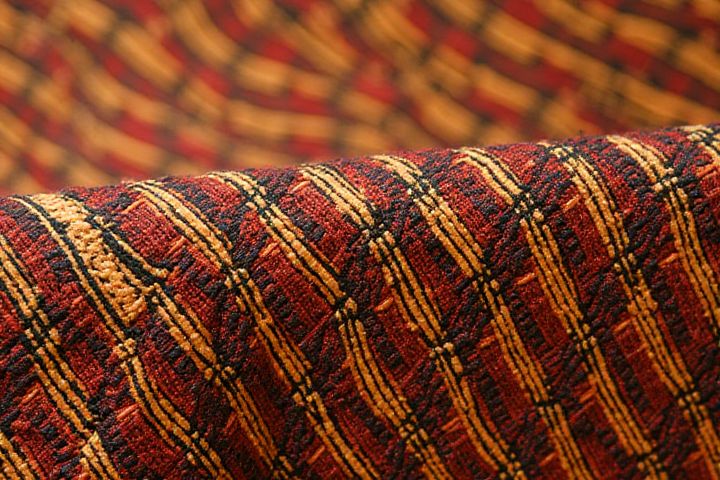
Nigeria's textile industry boasts a rich history, stemming from the country's diverse cultural heritage and traditional craftsmanship. The northern region is particularly notable for its intricate adire and aso-oke fabrics, which are often handcrafted using ancient techniques. In recent years, the government has implemented initiatives to revitalize local textile production, aiming to reduce dependency on imports and boost economic growth. Sustainable practices are gaining traction, with a focus on organic cotton farming and eco-friendly dyeing processes that minimize environmental impact. Investing in Nigeria's textile sector not only preserves cultural identity but also creates job opportunities and fosters entrepreneurship.
Traditional textile techniques
Nigeria's textile industry is renowned for its rich tradition of weaving and dyeing, showcasing techniques passed down through generations. Indigenous methods, such as tie-dye and batik, utilize natural dyes derived from local flora, enhancing both sustainability and cultural significance. Artisans skillfully produce vibrant fabrics, including Aso Oke and Adire, each reflecting regional styles and historical narratives. You can appreciate how these traditional textiles not only serve practical purposes but also play a vital role in preserving Nigeria's cultural heritage.
Indigenous fabric types
Nigeria's textile industry showcases a rich tapestry of indigenous fabric types, such as Aso-Oke, Adire, and Ankara, each reflecting unique cultural heritage and craftsmanship. Aso-Oke, handwoven by the Yoruba people, is renowned for its intricate patterns and vibrant colors, often used in ceremonial attire. Adire, a traditional dyed textile from the Yoruba culture, employs resist dye techniques to create stunning blue and white designs, symbolizing identity and community. Ankara, widely recognized for its bold prints and versatility, has gained international popularity, making it a staple in both local fashion and global markets, celebrating Nigeria's artistic diversity.
Cultural significance
Textiles in Nigeria reflect the rich cultural heritage and diversity of its various ethnic groups, showcasing intricate patterns and vibrant colors. Traditional weaving techniques, such as those used in Yoruba adire or the Hausa's alko, emphasize a connection to ancestral practices and storytelling. Fabrics like Aso Oke play a pivotal role in ceremonies, symbolizing status and community identity during events such as weddings and festivals. By incorporating textiles into everyday life and special occasions, you can engage with Nigeria's cultural legacy and appreciate the artistry that defines its vibrant society.
Textile industry growth
The textile industry in Nigeria represents a significant sector for economic growth, contributing to employment and local manufacturing. Comprising various segments such as cotton cultivation, fabric production, and garment manufacturing, it plays a vital role in the country's agricultural and industrial landscape. Investments in modern technology and sustainable practices are essential for enhancing productivity and quality in the Nigerian textile market. Promoting local brands and international collaborations can further elevate your understanding of this dynamic industry and drive future innovation.
Economic impact
The textile industry in Nigeria significantly contributes to the nation's economy, serving as a vital source of employment for millions and promoting rural development. Traditional crafts, combined with modern manufacturing techniques, enable local artisans to produce a wide range of fabrics, from Ankara to Aso Oke, enhancing cultural heritage and boosting export potential. The revival of the Nigerian textile sector has led to increased investment in infrastructure and technology, fostering innovation and competitiveness within the global market. By supporting local industries, consumers like you can help stimulate economic growth and job creation across the region.
Government policies
The Nigerian textile industry is significantly influenced by government policies aimed at revitalizing local production and reducing dependence on imported fabrics. Initiatives such as the Cotton, Textiles, and Garment (CTG) policy promote sustainable practices and encourage investment in domestic textile manufacturing. These policies often include incentives for local growers and manufacturers, alongside tariffs on imported textiles to bolster local businesses. With the government's emphasis on job creation and economic diversification, the textile sector plays a crucial role in Nigeria's overall socio-economic development.
Sustainable practices
Textile production in Nigeria increasingly emphasizes sustainable practices to address environmental challenges and promote social responsibility. Many manufacturers are adopting eco-friendly materials, such as organic cotton and recycled fibers, to reduce their ecological footprint. Additionally, initiatives aimed at empowering local artisans and preserving traditional weaving techniques are gaining traction, fostering economic growth within communities. You can support this movement by choosing brands that prioritize ethical sourcing and contribute to sustainable development in the Nigerian textile industry.
Market challenges
The Nigerian textile industry faces significant market challenges, including competition from cheaper imported fabrics that undermine local production. High operational costs, driven by the energy crisis and inadequate infrastructure, further exacerbate these issues, limiting the growth potential of domestic manufacturers. Additionally, the lack of access to modern technology hampers innovation and quality improvement, making it difficult for local textile companies to meet global standards. To thrive in this competitive landscape, stakeholders must address these pressing concerns through strategic investments and policy reforms that support local producers.
Textile education
Textile education in Nigeria plays a critical role in preserving traditional fabrics and advancing the industry through modern techniques. Institutions offer programs that cover diverse aspects such as fabric production, dyeing, weaving, and garment construction, helping students acquire practical skills. The curriculum often emphasizes sustainable practices and innovative textile technologies to meet global standards and market demands. By equipping students with knowledge in both cultural heritage and contemporary developments, Nigerian textile education supports the growth of a vibrant local industry while enhancing economic opportunities for individuals.
Export potential
The Nigerian textile industry boasts significant export potential, driven by its diverse range of locally produced fabrics, including cotton, silk, and Ankara. With a growing emphasis on sustainable practices, many manufacturers are adopting eco-friendly processes that appeal to international markets. Investments in technology and infrastructure are enhancing production capabilities, making Nigerian textiles more competitive globally. By tapping into trade agreements and partnerships, you can explore opportunities to promote and export high-quality Nigerian textiles, contributing to the country's economic growth.
